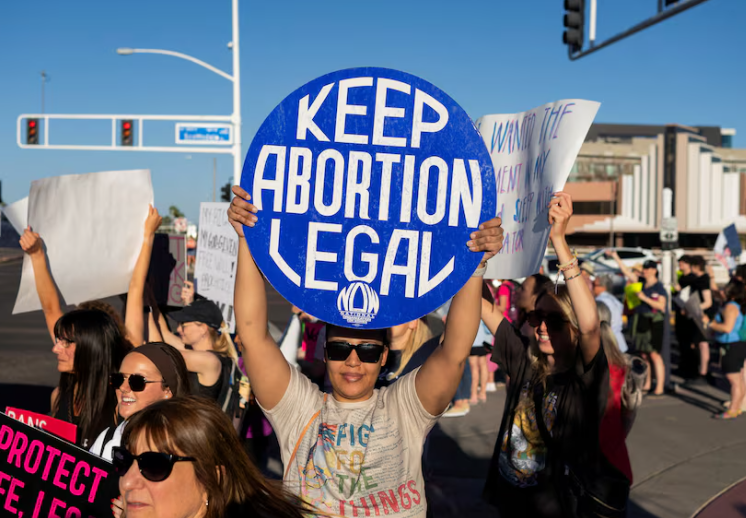Nearly two years after the U.S. Supreme Court overturned Roe v. Wade, litigation over abortion has surged dramatically. In 2022, Justice Samuel Alito wrote in Dobbs v. Jackson Women’s Health Organization that the court’s longstanding precedent had intensified debate and deepened division. He stated it was time to remove the abortion issue from the court’s jurisdiction and return it “to the people’s elected representatives.”
Instead of limiting court battles, the number of state court cases challenging various aspects of abortion bans or restrictions has skyrocketed, with over 20 Republican-led states imposing new measures post-Roe. Many key issues remain unresolved, and one abortion-related case is still before the Supreme Court.
Challenges to Abortion Bans
Abortion rights advocates, who previously challenged abortion restrictions in federal court citing Roe v. Wade, have shifted to state courts. They argue that bans or restrictions infringe on women’s rights to privacy, liberty, or due process guaranteed by state constitutions. In states where challenges have reached the highest courts—such as Florida, Idaho, and Texas—courts have upheld new restrictive abortion laws. No new ban has been permanently struck down.
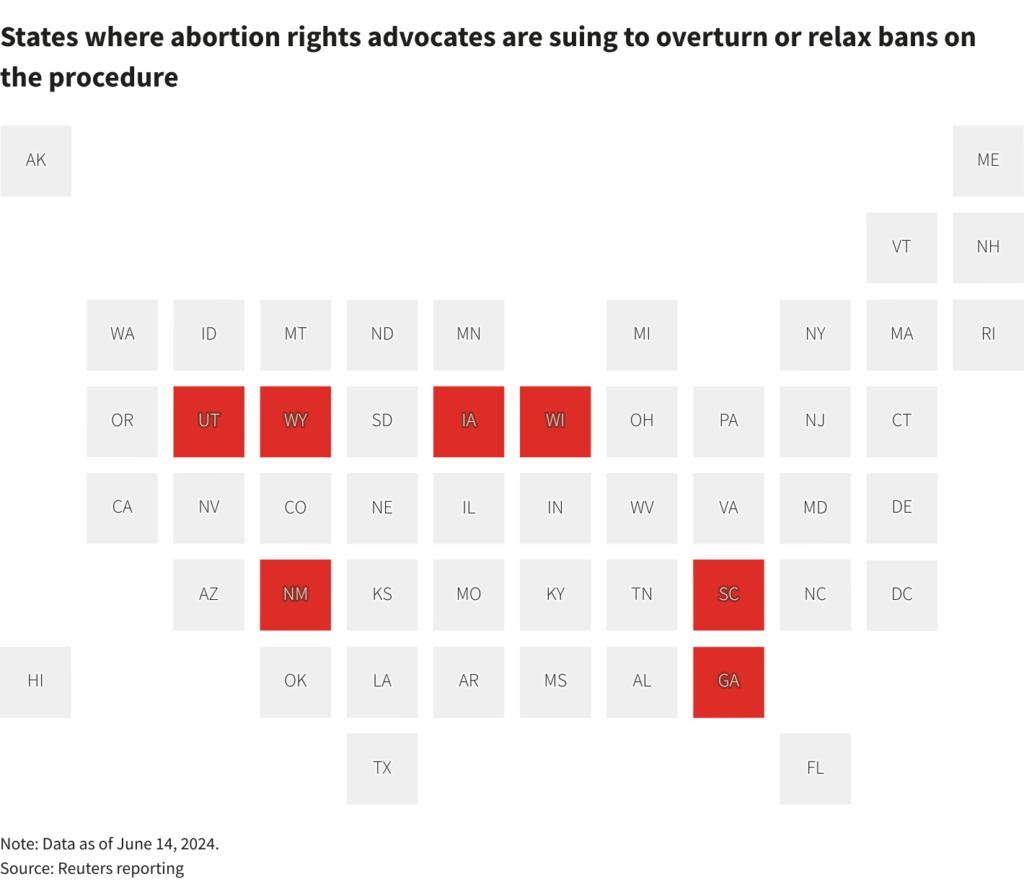
Pending challenges remain in states including Georgia, Utah, and Wyoming. In South Carolina, a ban on abortion after detecting a fetal “heartbeat” has largely been upheld, but plaintiffs are asking the court to rule that the ban should begin at around nine weeks of pregnancy when the chambers of the fetal heart form, not six weeks when electrical activity is detected.
Some cases asserting a fundamental right to abortion challenge not new state bans but local laws, as in New Mexico, or long-unenforced 19th-century laws, as in Wisconsin.
Abortion Pills
Medication abortion, which uses mifepristone and misoprostol to induce abortion in early pregnancy, accounted for 63% of U.S. abortions last year, up from 53% in 2020, according to the Guttmacher Institute. Anti-abortion advocates have sought to restrict mifepristone’s availability, concerned about easy access to the pills even in states where abortion is banned.
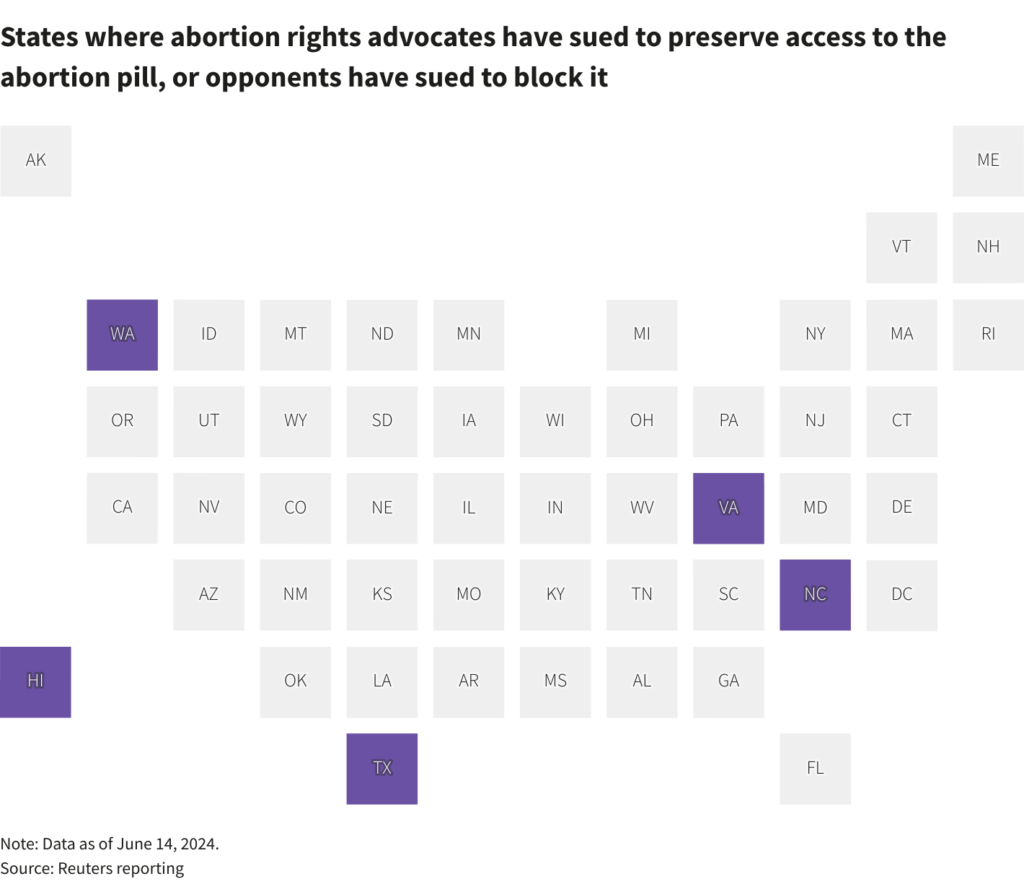
The Supreme Court recently rejected an appeal by abortion opponents that would have significantly restricted mifepristone’s distribution in all states if successful. However, similar claims by three Republican-led states remain pending in a lower court.
Meanwhile, lawsuits by abortion rights advocates aim to expand or preserve access to the drug in Virginia and Washington state. Another case in North Carolina will likely be appealed to the 4th U.S. Circuit Court of Appeals after a judge struck down some restrictions on mifepristone in that state.
Medical Emergencies
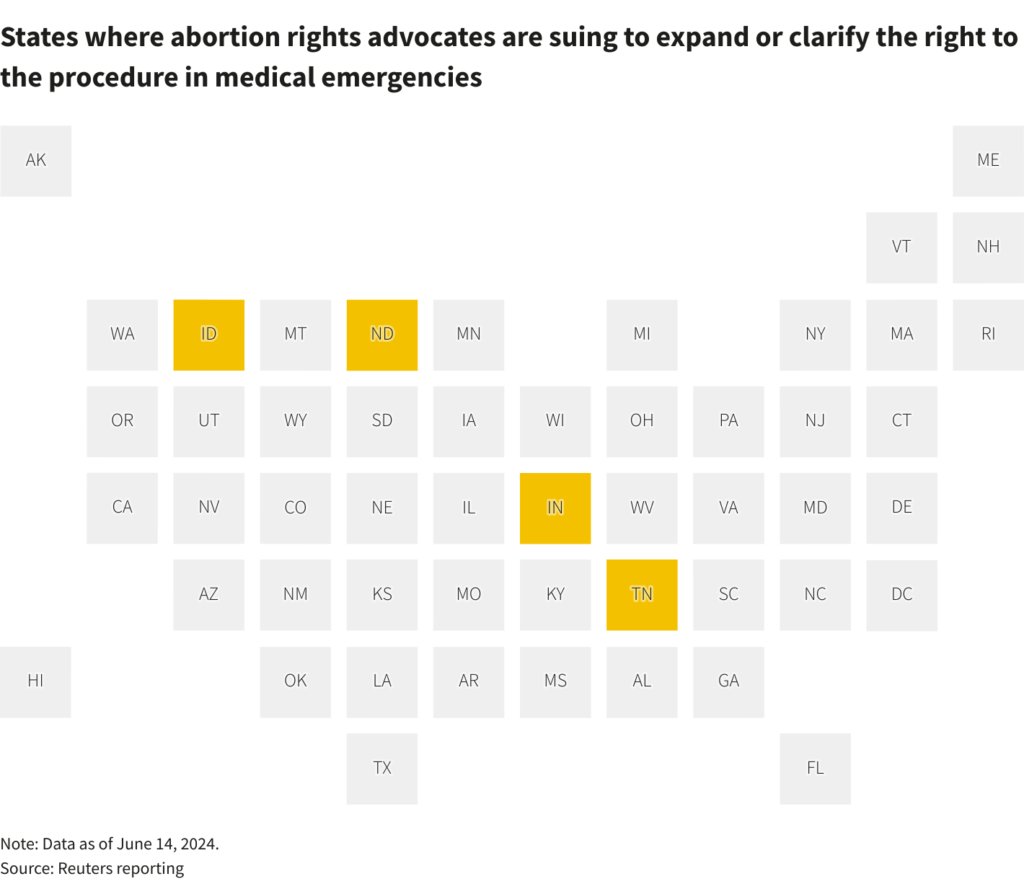
A growing number of cases focus on exceptions in abortion bans for women facing medical emergencies. These lawsuits argue that the exceptions, which typically allow abortion only to save the mother’s life and sometimes to prevent serious injury, violate women’s basic rights or are so unclear that doctors fear relying on them.
Such lawsuits are currently pending in Indiana, Tennessee, North Dakota, and Idaho. The Idaho case, which argues that the state’s abortion ban conflicts with a federal law requiring emergency rooms to stabilize patients, is on appeal before the Supreme Court and could affect care in other states as well. The Texas Supreme Court recently rejected a challenge seeking to broaden and clarify the state’s medical exception.
Interstate Travel
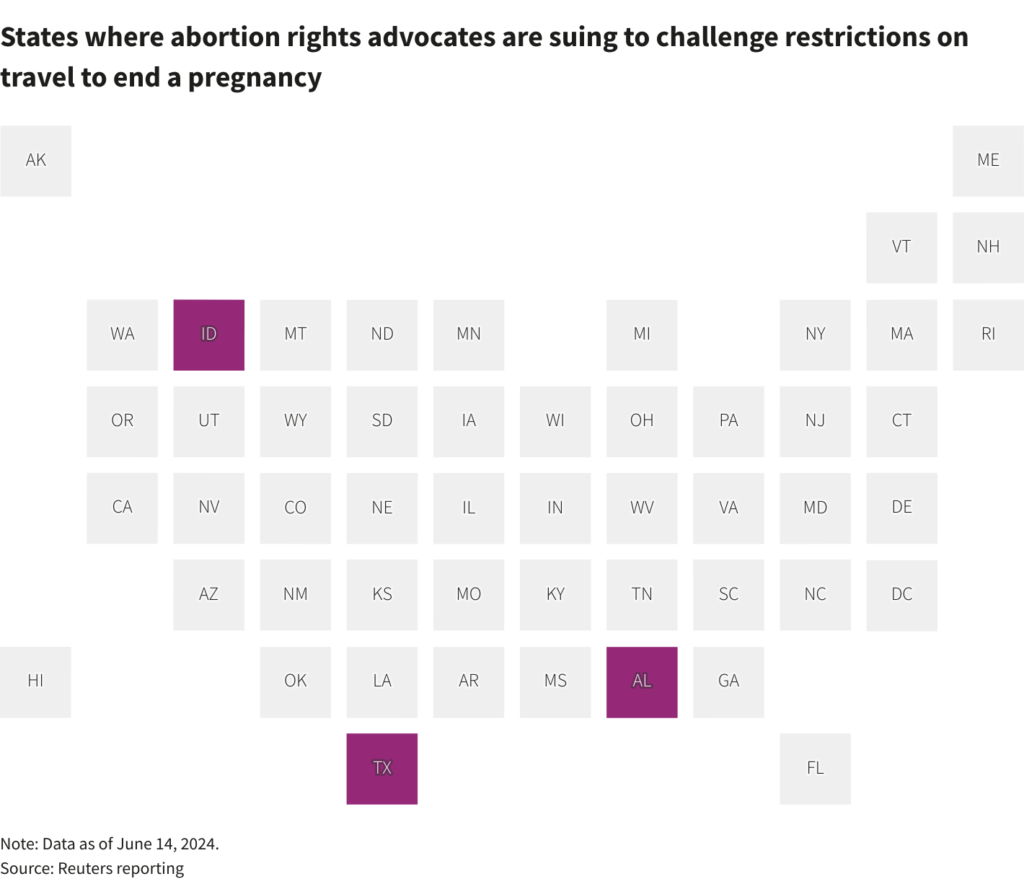
Several states and counties where abortion is banned have passed measures to make it more difficult for residents to travel to other states for the procedure, raising new legal issues about governments’ ability to legislate conduct outside their borders.
Lawsuits over such measures are pending in Alabama, which criminalizes helping anyone obtain an abortion, and Idaho, which seeks to revive a law prohibiting transporting minors across state lines for an abortion without parental consent. In Texas, a man is suing three women for allegedly helping his ex-wife obtain an abortion, an early test of a state law allowing such lawsuits.
Legal but Restricted
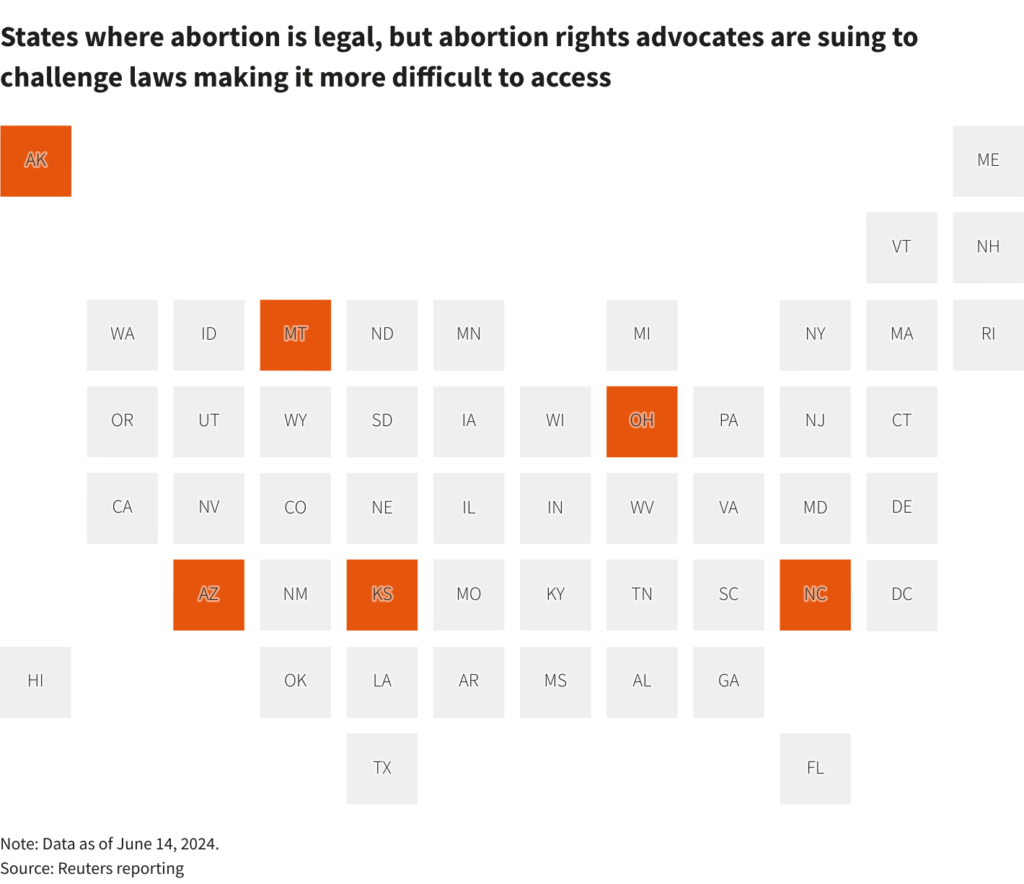
Abortion rights groups are challenging some state laws that generally allow abortions but impose restrictions. For example, a North Carolina lawsuit challenges a requirement that certain abortions be performed in hospitals, and a Michigan lawsuit challenges a 24-hour waiting period. In Arizona, a lawsuit challenges a “fetal personhood” law, which advocates say could be used to restrict abortion even though it is legal in the state. The state’s highest court earlier this year revived a 19th-century abortion ban, though the legislature subsequently repealed it.
While such lawsuits once relied on Roe v. Wade, they now allege that these restrictions violate state constitutional rights.

